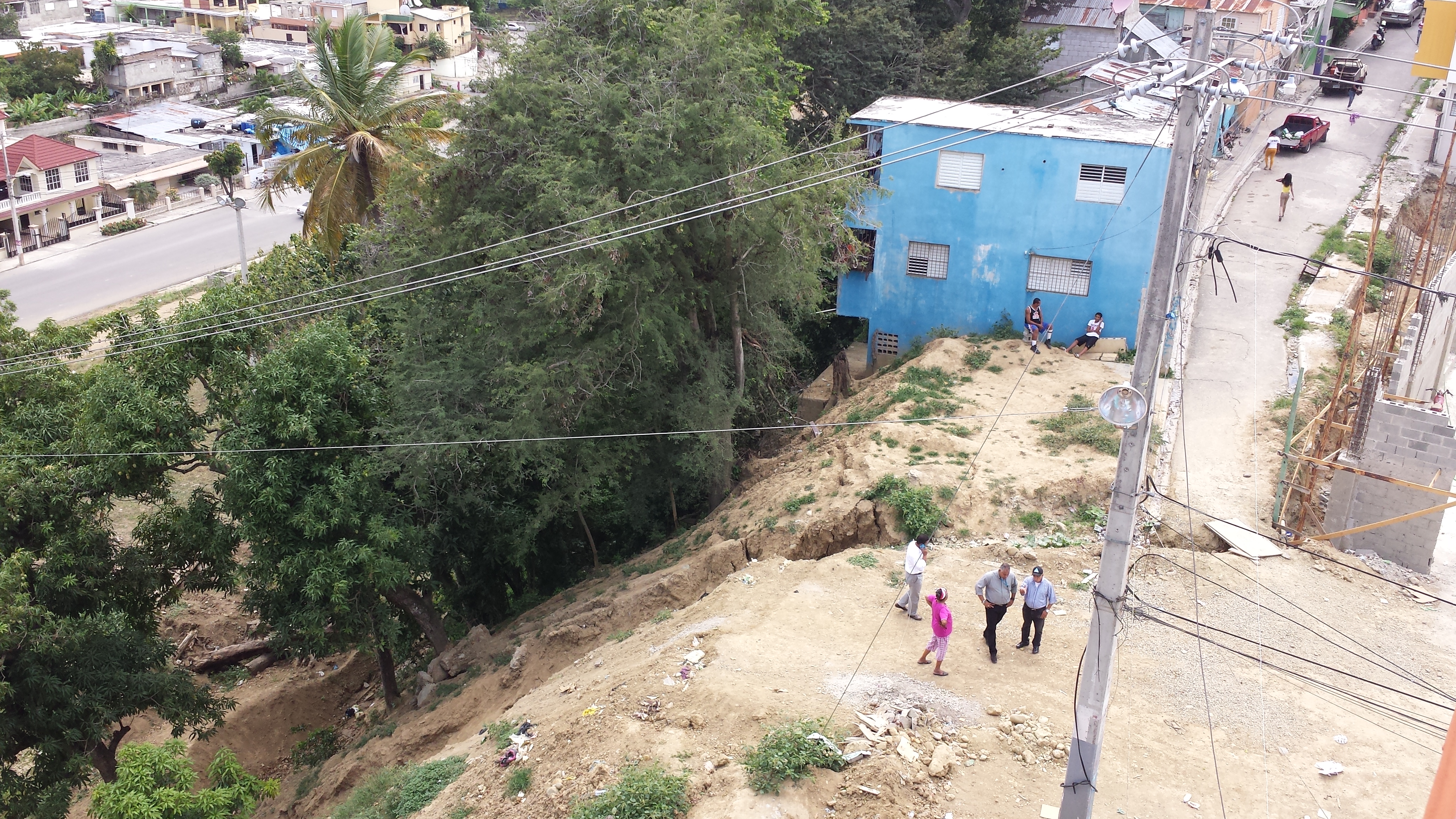
Sandwiched between the Atlantic Ocean and the Caribbean Sea, the Dominican Republic (pop. 10.4 million) ranks as one of ten countries in the world most vulnerable to climate change. Because of its location and climate-related changes, the country routinely experiences such environmental problems as flooding, droughts, extreme soil erosion, water shortages, and deforestation.
In response to the country’s vulnerability, the United States Agency for International Development (USAID) formalized an Urban Resilience Climate Change project (known by its Spanish name, Ciudades Líderes en Iniciativas y Metas de Adaptación), which is a significant effort under the umbrella of President Obama's Global Climate Change Initiative, to increase the resilience of communities in the Dominican Republic to the impacts of climate change by improving community participation in land use planning. USAID/Dominican Republic awarded one of several programs, the Planning for Climate Adaptation Program, to ICMA as the prime implementer earlier this year.
ICMA’s 100-year history of providing local governments with direct technical assistance, management tools, and capacity building and promoting exchanges between cities for the application, adaptation, and replication of innovative practices makes it uniquely qualified to provide assistance to cities in the Dominican Republic. A rich resource for urban specialists who have created and implemented innovative climate planning solutions at the local level, ICMA’s development work also involves strengthening the role of associations in the local government sector and promoting their long-term viability.
“The Planning for Climate Adaptation Program will contribute to increasing the resilience of Dominican municipalities by working with municipal officials, community-based organizations, private sector, and all relevant stakeholders in mainstreaming climate change considerations into participatory urban planning," says Indhira de Jesús, project director. "ICMA will facilitate a number of new and innovative processes to accomplish this goal. Our understanding of the impact of climate change in the Domican Republic remains in the realm of academics and scientists, and it needs to be translated into actionable criteria that can in turn be incorporated into land use plans and regulations.”
To carry out the Planning for Climate Adaptation Program, ICMA has assembled a team of organizations with specialized expertise in supporting rapidly growing cities in managing climate risk. They include
- The Technological Institute of Santo Domingo (INTEC), a leader in training and research on municipal planning and climate change.
- The Dominican Federation of Municipalities (FEDOMU), which has a history of working with municipalities in the country. ICMA currently works with FEDOMU under a USAID-funded Regional Cooperative Agreement to support the latter organization’s participation in the Network of Municipal Associations for Crime and Violence Prevention.
- ICF International, a firm known for its expertise in climate change, a team of climate scientists, policy analysts, economists, and planners—among others—who develop strategies and technical tools to help communities cope with climate impacts and uncertainty.
- Selected U.S. communities that can provide pro-bono technical assistance in integrating climate considerations into land use planning.
Additionally, the ICMA team’s all-Dominican-based key personnel understand the dynamics of local government in the Dominican Republic. According to de Jesús:
“ICMA’s team comprises some of the country’s leading experts in municipal planning, community participation and adaptation to climate change, complemented by strong national and international partners. A combination ideally suited to deliver innovative and sustainable ways to increase community resilience to climate change through municipal planning and governance.”
Future projections for the Dominican Republic indicate that regional and seasonal changes in precipitation and steadily increasing temperatures will likely lead to even more droughts in arid parts of the country, such as the Northwest, and extreme rainfall in the Southern and Eastern regions, according to a 2013 assessment report prepared by USAID. To become more resilient, the country must address its
- Physical vulnerability and exposure
- Social and economic vulnerability and dependence on natural resources that are exposed to climate stresses
- Institutional vulnerability, which prevents the necessary inclusion of key information and marginalized populations into decision-making.
The Planning for Climate Adaptation Program will focus initially in the Santo Domingo National District, Santiago, and the two coastal cities of San Pedro de Macoris and Las Terrenas, as well as the watersheds that contain them—a region that is home to roughly 20 percent of the country’s population. Key program elements are to
- Assess the needs and gaps in each municipality.
- Tailor a capacity-building work plan for each municipality, based on the assessment.
- Engage community-based organizations in communicating the impacts of climate change to vulnerable populations (women, LGBT, the disabled) and involving them in sustainable and inclusive planning processes.
- Train personnel in municipal departments and the local NGOs in participatory planning and climate adaptation techniques and tools.
- Institutionalize the participatory planning process in the municipalities and create clearly written procedures and documentation that will enable local land use plans to be periodically updated and replicated elsewhere.
- Develop a cadre of experts in planning and climate change.
- Strengthen the capacity of FEDOMU in the regions where the initial municipalities are located so that they can assist in scaling up and replicating the methodology after it has been established.
The Planning for Climate Adaptation Project will develop models that can be sustained locally and replicated throughout the country over time. For more information, visit ICMA's Dominican Republic country page or the Planning for Climate Adaptation Project page.
New, Reduced Membership Dues
A new, reduced dues rate is available for CAOs/ACAOs, along with additional discounts for those in smaller communities, has been implemented. Learn more and be sure to join or renew today!
